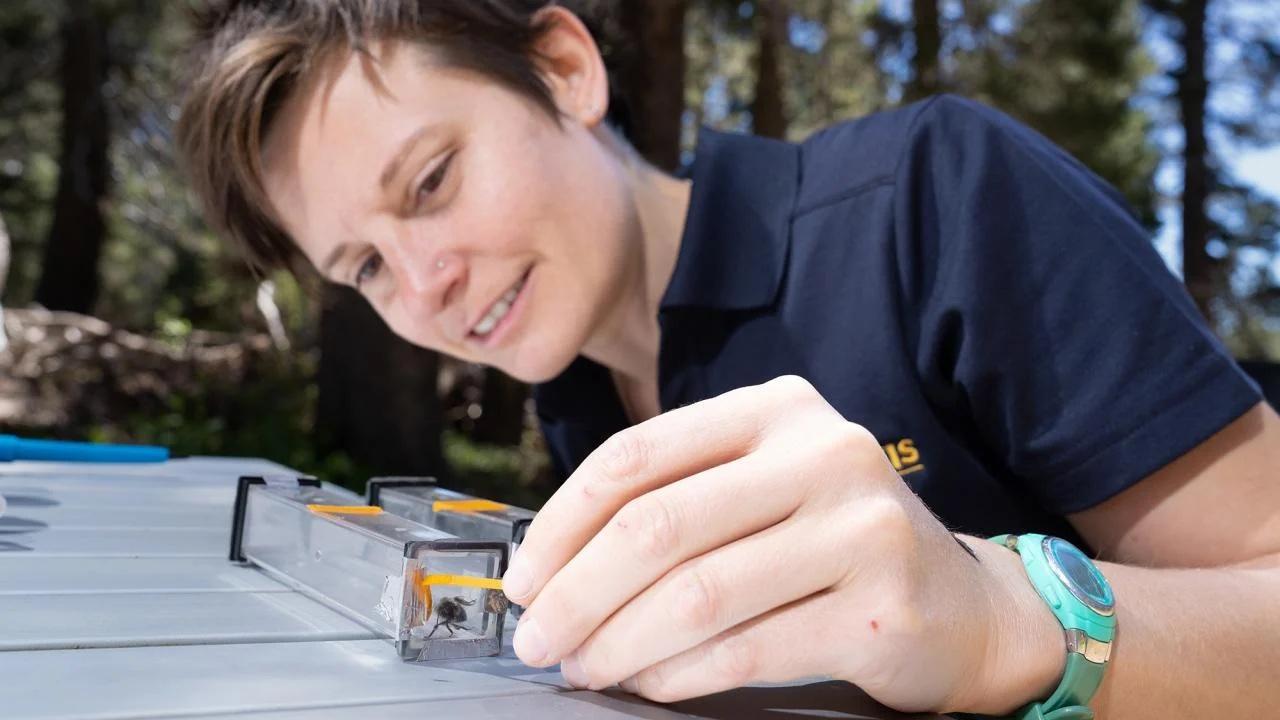
Event Date
⭐️ Presented by the Center for the Advancement of Multicultural Perspectives on Science (CAMPOS)
Felicity Muth
Assistant Professor
Neurobiology, Physiology and Behavior

How do animals think? Some insights from bumblebees.
Animals use their cognition (perception, learning and decision-making) to navigate their worlds, making complex decisions. Many of these processes are shared amongst humans and non-human animals. Here I draw on a few topics from our research to highlight ways that bees (and perhaps other animals too) think about things. In addition, I discuss some recent outreach events from our lab and efforts to spread knowledge about native bees.
Read an article about Muth's funding from The National Geographic Society for her project, "Ecology Shaping Cognition: An Exploration with Wild Bees."
Muth is also a children's book author! Learn more about: "Am I even a bee?"
Check out our other CAMPOS speakers lined up for the 2024-2025 year on our CAMPOS Colloquium page!
